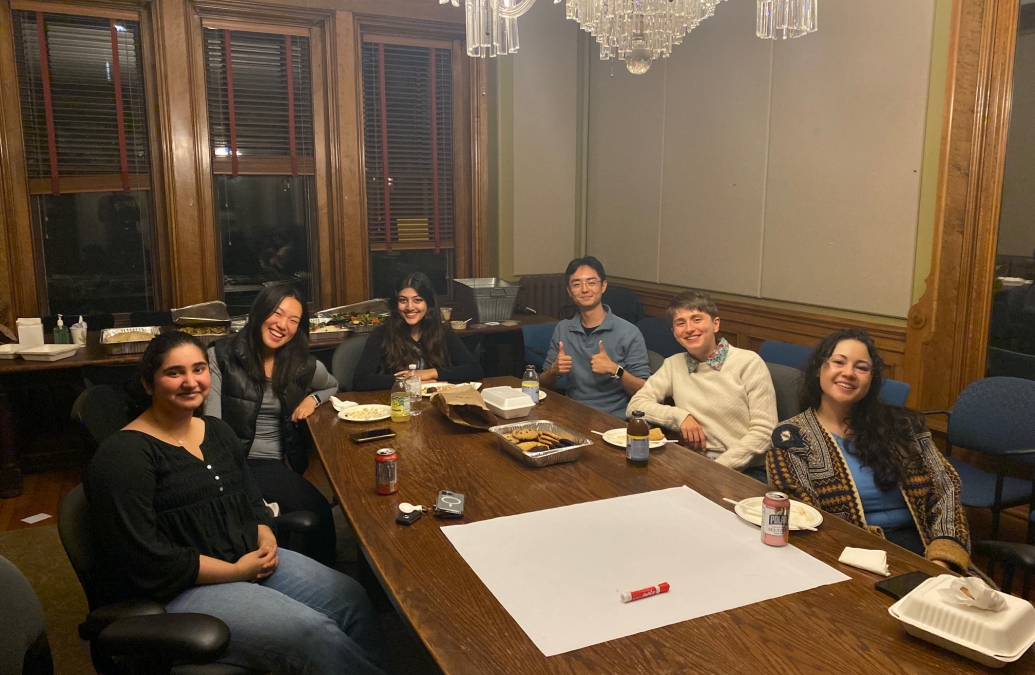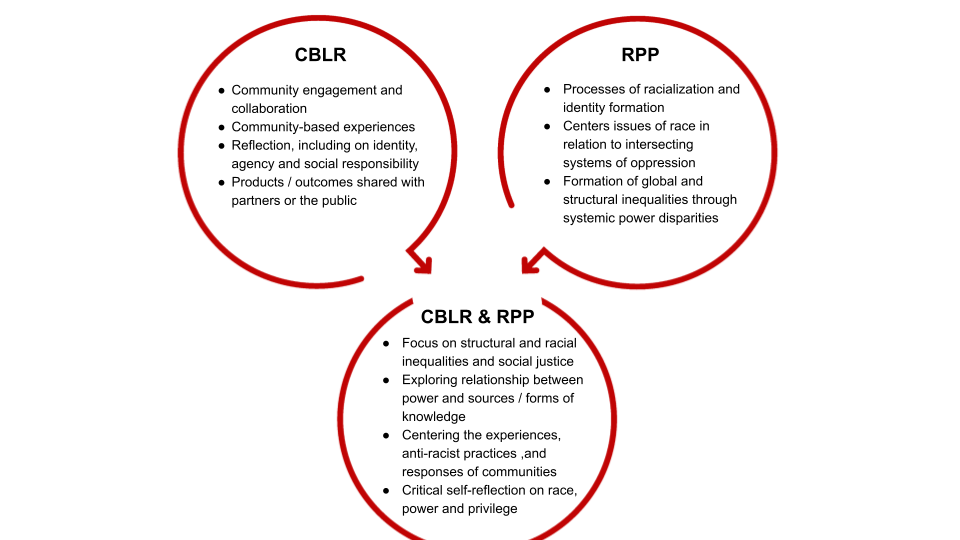Teaching Race, Power, and Privilege Through Community Engagement

Current Engaged Scholarship Certificate program cohort members
Tania D. Mitchell, a leading researcher in critical and engaged pedagogies in higher education, argues that “core tenets of intersectionality can be employed to inform and create a community engagement practice that addresses the interconnected structures of inequality in order to affect meaningful change.” (Mitchell 2017, 35) Faculty seeking to teach about racial power dynamics and structural inequalities may find engaging students in collaborative work with affected communities complex, given the diverse identities students possess. Designing courses that align with both the Community-Based Learning and Research (CBLR) and the Race, Power and Privilege (RPP) curricular designations can be an effective way, however, to foster critical self-reflection and analysis of structural inequalities and center the experiences, responses, and knowledge of racialized communities.

he RPP undergraduate course designation focuses on structural inequalities and racial formations both in the United States and global settings. This designation is an outcome of the university’s Task Force on Diversity in the Curriculum (2016 report) and decisions by the College Curriculum Council then (resulting in the DIAP designation name) and in 2021 (shifting to RPP). RPP courses “examine issues of structural inequality, racial formations and/or disparities and systems of power in a complex, pluralistic world.” As such, they may focus on:
- “the ways different forms of power and privilege construct racial and identity formations in the U.S. and/or globally; the cultural, political and intellectual responses to this racialization;
- how categories of race and ethnicity are produced intersectionally in relation to other hierarchical structures of difference including gender, sexual orientation, class, religion, ability, citizenship status and geography;
- the structures, institutions, practices and attitudes that enable, maintain or mitigate domestic and/or global disparities in health, income, education outcomes, media representations, etc.; and/or
- the ways in which disciplinary structures of knowledge have been embedded in such historical formations as racism and colonialism.”
Designing RPP courses with community-engaged practices can be an effective way to center the experiences and knowledge of communities affected by structural inequalities, invite students to contribute to collaborative projects that prioritize community goals, and reflect on their identities and responsibilities in relation to systems of domination and structural inequalities. While most CBLR courses engage with community partners in Rhode Island, some extend their work to transnational organizations and virtual communities. Coupled with the priorities of RPP, the two designations can elevate the strengths of each to create an immersive course that involves students in community practices of social change as they develop intellectual and theoretical approaches to inequality and power, while being reflexive about their own positions and engagement.
Since Fall 2022, ten courses have been offered that carry both RPP and CBLR designations, listed here with some example syllabi. To learn more about the RPP course designation and read sample learning objectives for RPP courses, visit the Examining Race, Power, and Privilege webpage. There are also course development funds available for RPP courses; applications for Spring 2024 can be submitted in UFunds through November 10, 2023.
For consultation on preparing a RPP + CBLR course, you can reach out to Julie Plaut at the Swearer Center. Other suggested resources for faculty considering the development of RPP + CBLR courses include Campus Compact’s page on Principles of Anti-Racist Community Engagement and Swearer’s suggested resources for faculty teaching CBLR courses.
